Claude Lanzmann
Nacimiento : 1925-11-27, Paris, Ile-de-France, France
Muerte : 2018-07-05

Himself (archive footage)
A chronicle of the Holocaust, told by the resilient survivors who lived through it.

Claude Lanzmann
After his retirement, french philosopher and bullfighting enthusiast Francis Wolff decides to embark on a journey to France, Spain and Mexico joined by two mexican filmmakers who hardly know anything about bullfighting, a culture whose days seem to be numbered. During their road trip, they encounter numerous personalities with whom they reflect on mankind’s relationship with animals and nature, but most importantly on our relationship with death and the meaning of the ultimate journey: life itself.
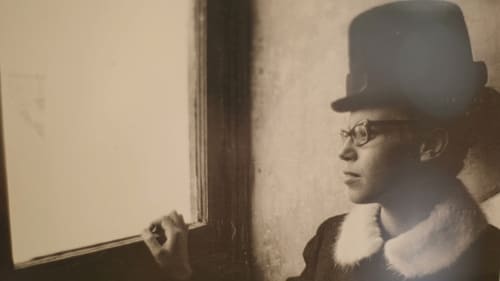
Self (Archival footage)
This film tells the life story of Ziva Postec, emphasizing the period when she was editing Shoah from 350 hours of footage.

Since 1999, Claude Lanzmann has made several films that could be considered satellites of Shoah, comprised of interviews conducted in the 1970s that didn’t make it into the final, monumental work. He has just completed a series of four new films, built around four women from four different areas of Eastern Europe with four different destinies, each finding herself unexpectedly and improbably alive after war’s end.

Writer
Since 1999, Claude Lanzmann has made several films that could be considered satellites of Shoah, comprised of interviews conducted in the 1970s that didn’t make it into the final, monumental work. He has just completed a series of four new films, built around four women from four different areas of Eastern Europe with four different destinies, each finding herself unexpectedly and improbably alive after war’s end.

Director
Since 1999, Claude Lanzmann has made several films that could be considered satellites of Shoah, comprised of interviews conducted in the 1970s that didn’t make it into the final, monumental work. He has just completed a series of four new films, built around four women from four different areas of Eastern Europe with four different destinies, each finding herself unexpectedly and improbably alive after war’s end.
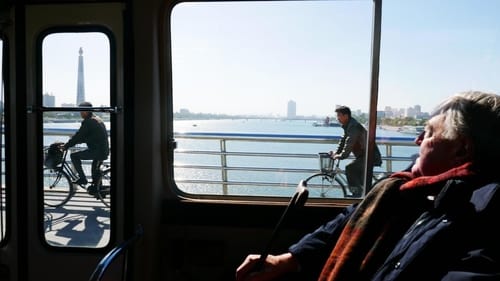
Himself
"Napalm" es la narración del estremecedor "breve encuentro", en 1958, entre un miembro francés de la primera delegación de Europa Occidental invitada a Corea del Norte tras la devastadora guerra de Corea y una enfermera del hospital de la Cruz Roja coreana, en Pyongyang, la capital de la República Democrática Popular de Corea. La enfermera Kim Kun Sun y el delegado francés solo tenían una sola palabra en común que ambos comprendían: "Napalm", que dio título a la película. Claude Lanzmann regresó a Corea sin autorización para filmar y cada plano representa una extraordinaria victoria sobre el control permanente de la policía política del régimen, que no descubrió las auténticas razones de su regreso a la península de este norte extremo hasta sesenta años más tarde.

Writer
"Napalm" es la narración del estremecedor "breve encuentro", en 1958, entre un miembro francés de la primera delegación de Europa Occidental invitada a Corea del Norte tras la devastadora guerra de Corea y una enfermera del hospital de la Cruz Roja coreana, en Pyongyang, la capital de la República Democrática Popular de Corea. La enfermera Kim Kun Sun y el delegado francés solo tenían una sola palabra en común que ambos comprendían: "Napalm", que dio título a la película. Claude Lanzmann regresó a Corea sin autorización para filmar y cada plano representa una extraordinaria victoria sobre el control permanente de la policía política del régimen, que no descubrió las auténticas razones de su regreso a la península de este norte extremo hasta sesenta años más tarde.

Director
"Napalm" es la narración del estremecedor "breve encuentro", en 1958, entre un miembro francés de la primera delegación de Europa Occidental invitada a Corea del Norte tras la devastadora guerra de Corea y una enfermera del hospital de la Cruz Roja coreana, en Pyongyang, la capital de la República Democrática Popular de Corea. La enfermera Kim Kun Sun y el delegado francés solo tenían una sola palabra en común que ambos comprendían: "Napalm", que dio título a la película. Claude Lanzmann regresó a Corea sin autorización para filmar y cada plano representa una extraordinaria victoria sobre el control permanente de la policía política del régimen, que no descubrió las auténticas razones de su regreso a la península de este norte extremo hasta sesenta años más tarde.
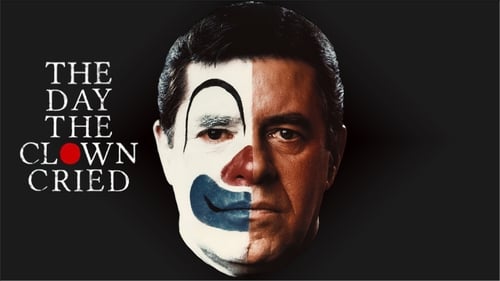
Self
A documentary directed by Eric Friedler about Jerry Lewis' never released movie "The Day The Clown Cried".

The process of making Shoah.
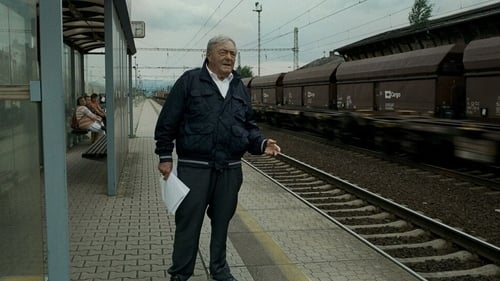
Himself
'El último de los injustos' cuenta la historia de Benjamin Murmelstein, el último presidente del Consejo Judío en Theresienstadt, "el gueto modelo", un campo de concentración utilizado por Adolf Eichmann para engañar al mundo con una imagen de ciudad tranquila donde los ancianos judíos podían retirarse. Pero la realidad era muy distinta, Theresienstadt era centro de paso para la posterior deportación de los judíos a otros campos de exterminio. Murmelstein luchó contra Eichmann durante más de siete años, llegando a conseguir que 121.000 judíos emigrasen y la liquidación total del guetto.

Writer
'El último de los injustos' cuenta la historia de Benjamin Murmelstein, el último presidente del Consejo Judío en Theresienstadt, "el gueto modelo", un campo de concentración utilizado por Adolf Eichmann para engañar al mundo con una imagen de ciudad tranquila donde los ancianos judíos podían retirarse. Pero la realidad era muy distinta, Theresienstadt era centro de paso para la posterior deportación de los judíos a otros campos de exterminio. Murmelstein luchó contra Eichmann durante más de siete años, llegando a conseguir que 121.000 judíos emigrasen y la liquidación total del guetto.

Director
'El último de los injustos' cuenta la historia de Benjamin Murmelstein, el último presidente del Consejo Judío en Theresienstadt, "el gueto modelo", un campo de concentración utilizado por Adolf Eichmann para engañar al mundo con una imagen de ciudad tranquila donde los ancianos judíos podían retirarse. Pero la realidad era muy distinta, Theresienstadt era centro de paso para la posterior deportación de los judíos a otros campos de exterminio. Murmelstein luchó contra Eichmann durante más de siete años, llegando a conseguir que 121.000 judíos emigrasen y la liquidación total del guetto.

Himself
A powerful new film about Jan Karski, the Polish resistance figure who attempted to expose the Warsaw Ghetto and Belzec, and met with President Franklin D. Roosevelt and Supreme Court Justice Felix Frankfurter.

Writer
A powerful new film about Jan Karski, the Polish resistance figure who attempted to expose the Warsaw Ghetto and Belzec, and met with President Franklin D. Roosevelt and Supreme Court Justice Felix Frankfurter.

Director
A powerful new film about Jan Karski, the Polish resistance figure who attempted to expose the Warsaw Ghetto and Belzec, and met with President Franklin D. Roosevelt and Supreme Court Justice Felix Frankfurter.

Writer
At the occasion of the sixtieth anniversary of Israel, Claude Lanzmann made an interview of Ehud Barak, on March 1st, 2008.

Director
At the occasion of the sixtieth anniversary of Israel, Claude Lanzmann made an interview of Ehud Barak, on March 1st, 2008.

Self - Interviewer
At the occasion of the sixtieth anniversary of Israel, Claude Lanzmann made an interview of Ehud Barak, on March 1st, 2008.

Writer
A Claude Lanzmann documentary about one uprising by Jews in a Nazi-run concentration camp taken from his Shoah interviews.

Himself - Interviewer
A Claude Lanzmann documentary about one uprising by Jews in a Nazi-run concentration camp taken from his Shoah interviews.

Director
A Claude Lanzmann documentary about one uprising by Jews in a Nazi-run concentration camp taken from his Shoah interviews.

Himself
An interview with a WWII Red Cross official who wrote a glowing report on a Jewish ghetto-cum-death camp.

Producer
An interview with a WWII Red Cross official who wrote a glowing report on a Jewish ghetto-cum-death camp.

Writer
An interview with a WWII Red Cross official who wrote a glowing report on a Jewish ghetto-cum-death camp.

Director
An interview with a WWII Red Cross official who wrote a glowing report on a Jewish ghetto-cum-death camp.

Writer
The ideologies underlying the foundation of modern Israel are explored in this documentary, the third of a trilogy (created over a twenty year span) exploring the Jewish experience. The two earlier documentaries, "Porquoi Israel," and "Shoah," have had great effect on the ways documentaries are produced. "Tsahal" zeroes in on the crucial role of the military in Israeli society and politics. The film uses many in-depth interviews to present the many feelings and thoughts about the Israeli military.

Director
The ideologies underlying the foundation of modern Israel are explored in this documentary, the third of a trilogy (created over a twenty year span) exploring the Jewish experience. The two earlier documentaries, "Porquoi Israel," and "Shoah," have had great effect on the ways documentaries are produced. "Tsahal" zeroes in on the crucial role of the military in Israeli society and politics. The film uses many in-depth interviews to present the many feelings and thoughts about the Israeli military.

Himself
The ideologies underlying the foundation of modern Israel are explored in this documentary, the third of a trilogy (created over a twenty year span) exploring the Jewish experience. The two earlier documentaries, "Porquoi Israel," and "Shoah," have had great effect on the ways documentaries are produced. "Tsahal" zeroes in on the crucial role of the military in Israeli society and politics. The film uses many in-depth interviews to present the many feelings and thoughts about the Israeli military.
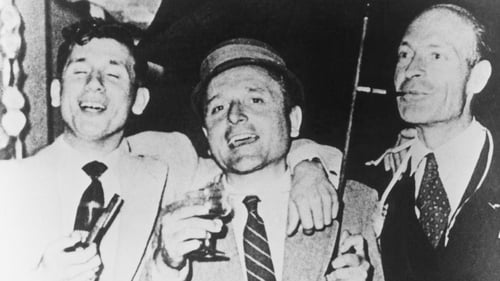
Self
Documental sobre el proceso contra Klaus Barbie, jefe de la Gestapo de Lyon, y sobre su vida después de la guerra.

Self - Interviewer
Rodada entre los años 1970 y 1980, investiga las causas y motivos del genocidio desde el nivel de la experiencia: los paisajes de los campos de exterminio y los guetos, las rutinas diarias de los encarcelados, el inexorable trauma de la humillación, el castigo y el exterminio, y los fascinantes y escalofriantes testimonios de aquellos que lo experimentaron de primera mano, salvaguardando para siempre en el tiempo las palabras de aquellos que sobrevivieron. Las imágenes de archivo están desterradas en la obra de Lanzmann y son estas mismas palabras las que ejercen como vehículo y alma de la narración. La obra de un genio, un esfuerzo heróico por humanizar lo inhumano, por narrar lo inarrable y explorar con un detalle sin precedentes los horrores del pasado.

Writer
Rodada entre los años 1970 y 1980, investiga las causas y motivos del genocidio desde el nivel de la experiencia: los paisajes de los campos de exterminio y los guetos, las rutinas diarias de los encarcelados, el inexorable trauma de la humillación, el castigo y el exterminio, y los fascinantes y escalofriantes testimonios de aquellos que lo experimentaron de primera mano, salvaguardando para siempre en el tiempo las palabras de aquellos que sobrevivieron. Las imágenes de archivo están desterradas en la obra de Lanzmann y son estas mismas palabras las que ejercen como vehículo y alma de la narración. La obra de un genio, un esfuerzo heróico por humanizar lo inhumano, por narrar lo inarrable y explorar con un detalle sin precedentes los horrores del pasado.

Director
Rodada entre los años 1970 y 1980, investiga las causas y motivos del genocidio desde el nivel de la experiencia: los paisajes de los campos de exterminio y los guetos, las rutinas diarias de los encarcelados, el inexorable trauma de la humillación, el castigo y el exterminio, y los fascinantes y escalofriantes testimonios de aquellos que lo experimentaron de primera mano, salvaguardando para siempre en el tiempo las palabras de aquellos que sobrevivieron. Las imágenes de archivo están desterradas en la obra de Lanzmann y son estas mismas palabras las que ejercen como vehículo y alma de la narración. La obra de un genio, un esfuerzo heróico por humanizar lo inhumano, por narrar lo inarrable y explorar con un detalle sin precedentes los horrores del pasado.

Himself
Using interviews and other footage shot especially for this documentary, French director Claude Lanzmann investigates the state of Israel in 1972. This movie concentrates on Israelis going about their business of everyday living.

Writer
Using interviews and other footage shot especially for this documentary, French director Claude Lanzmann investigates the state of Israel in 1972. This movie concentrates on Israelis going about their business of everyday living.

Director
Using interviews and other footage shot especially for this documentary, French director Claude Lanzmann investigates the state of Israel in 1972. This movie concentrates on Israelis going about their business of everyday living.


































